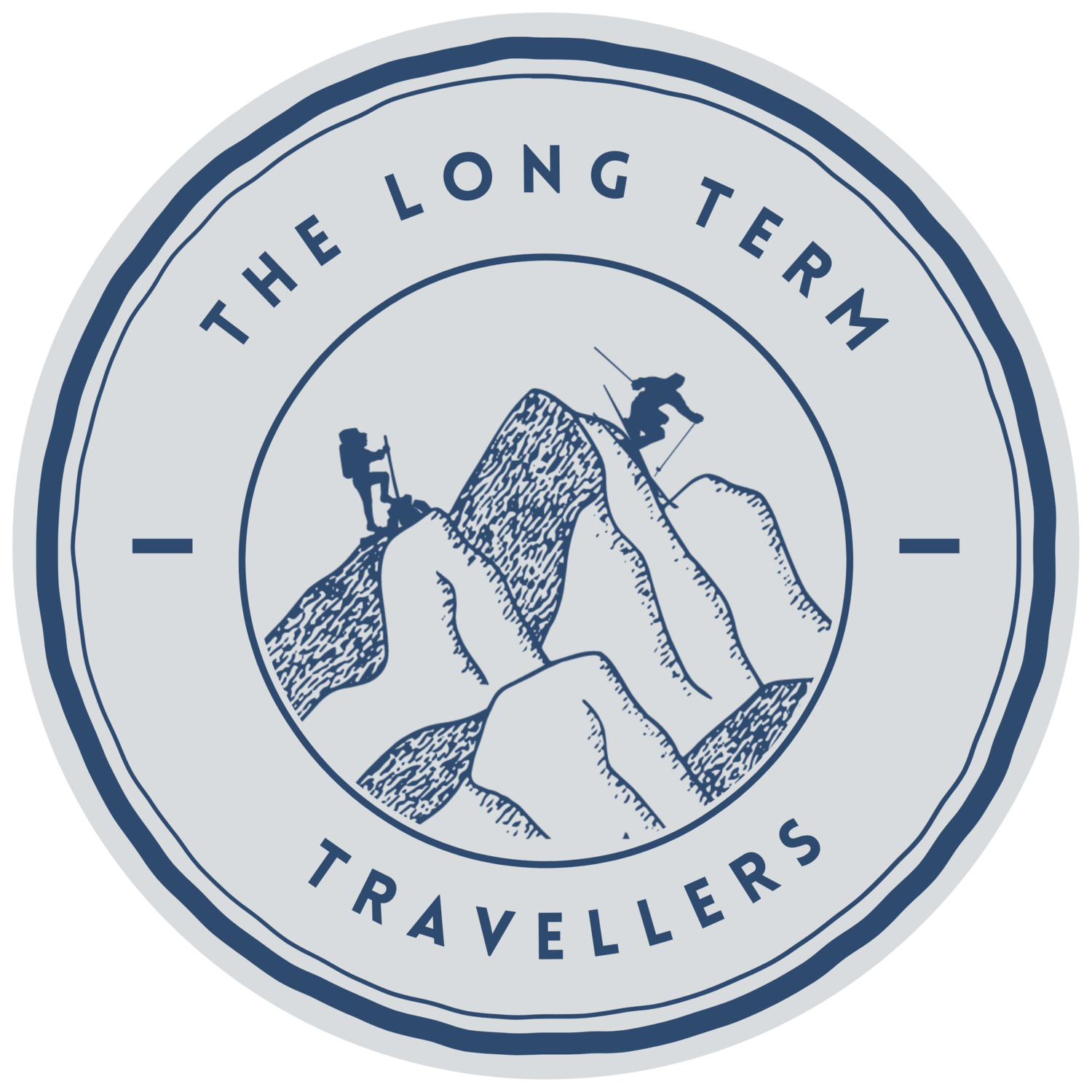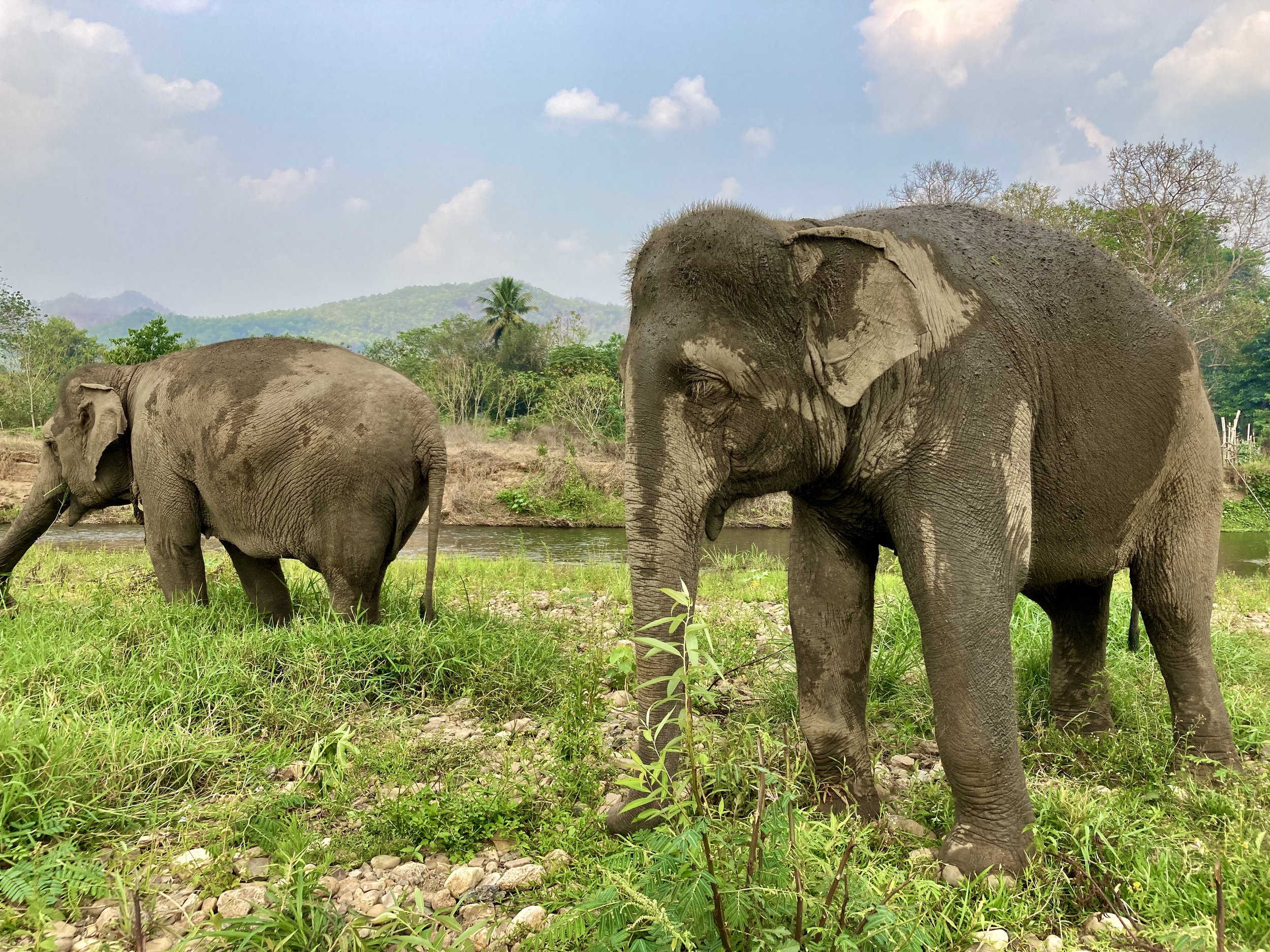What Kind of Long Term Traveller Are You?
Trying to generalise long term travellers into one category is near impossible, because this one umbrella term comprises so many different kinds of people and lifestyles. It is more of a spectrum than one singular lifestyle choice; sharing the common theme of travel at the core.
For those looking to get into the lifestyle of long term travel, or who are curious about it, this post is mainly for you. Before you start looking for which visa paperwork to get, or how much to save, you should have a think about what kind of travelling you want to do.
Do you want to keep your career trajectory going?
Do you want to sell it all and hit the road?
Have you already made your money and want to head somewhere different for your retirement?
“We’re attempting to crush the myth that to live this kind of lifestyle, you have to forgo your career aspirations or abandon your treasured belongings””
Start Here
As we mention within our What is Long Term Travel post, long term travellers are typically able to make an income through their travels, and sustain their lifestyle financially while making their way around the world. They do this by either working across different countries, working remotely, or relying on various assets and investments to fund their adventures.
However, we also mention that there are other types of long term travellers who do so in set periods of time, relying on savings they have accrued, making the most of gap years, sabbaticals, strategic transitional periods, or flexibility within their jobs that sees them having large blocks of time off each year.
If you already are travelling, where do you fit on the spectrum?
If you’re planning to travel, or are simply curious, which lifestyle appeals to you the most?
What types of long term travellers are there?
As such a generalised topic, we’ve chosen to narrow them down into three different categories, with each one having multiple kinds of people within it.
Sabbatical Travellers
Working Travellers
Retirees
1. Sabbatical Travellers
Vanlife is a really popular trend throughout the ‘sabbatical traveller’ community. We’ve met loads of people on the road of all ages and from all walks of life, choosing to live out of their campers for the flexibility and ease of travel. If you’re keen to know more about vanlife, we’ll be writing up our experiences (both long and short) in the coming months, follow us here.
This is the term we’ve used to describe people who travel longer term on savings they have accrued, whether they are taking a career break, pursuing other passions outside of work, or have just reached a transitory period in their life.
These types of travellers are backpackers, gap year travellers, volunteers, someone on an energy exchange, people on a traditional sabbatical (unpaid or not), or people who have a home base but choose to travel for a few months every year holiday-style. Typically saving a lump sum, these types of travellers have full-time travel in common and are doing it within a set period of time. Whether it’s a backpacker taking a year off after university, a middle aged couple taking a career break, a professional wanting to volunteer their services for six months, or a nomad who plans to see how far their allocated savings takes them.
This type of travel is the best for people who want to experience long term travel but like their home base, and/or want to keep their career within the same space. They want to be able to go beyond short term or holiday travel but want to do it in a smaller capacity, not wanting to relocate abroad or sell off all their treasured possessions, but just dabble in something different.
2. Working Travellers
One of the things we’ve enjoyed the most about working travel is the opportunity to live in some of the most beautiful places in the world while continuing to earn, save and develop our skillsets.
Working travellers make an income through their travels.
These types of travellers are your business travellers, digital nomads, seasonaires, or people who have taken their career abroad. They essentially work and live similar lives as the mainstream, only travel is a main component of their job and/or lifestyle, either working remotely or through an organisation, for themselves or for someone else, off of their laptop or through a standard place of work.
This option is best for people who want to live abroad. It is especially suited to people who enjoy seasonal work or work within mainstream travel and tourism industries, people who are self-employed, especially those who own businesses online and/or can work remotely, and benefits those who have a universal skillset, one that is found within many different countries.
This is the type of travel we’ve done throughout our twenties and we’ve enjoyed trying new things, honing in our skillsets, and contributing to local economies and businesses. We’ll always be a big advocate for working abroad as it’s a great way to connect with like-minded people, some of our closest friends coming from our working travels.
3. Retirees
We met loads of retirees and semi-retirees in our time in Asia, mostly those who were there for the low cost of living. Among these were many travellers pursuing energy exchanges and voluntourism, like working in a sanctuary or part-time at a language centre. Energy exchanges are fantastic ways for retired travellers to still use their skills, with the added benefit of keeping their cost of living to a minimum.
Retirees, as the name suggests, have already made their income, and are living off their various assets and investments they use to fund their travels.
This category features full-on pensioners, the kind that live half the year in Asia or Central America to stretch their retirement fund, or the semi-retiree kind, who either manage various assets in a part-time capacity, or pick up the odd job for ‘fun money’ but rely mainly on their other streams of revenue.
This option is great for people who have retired and want to see the world, whether they fit the stereotype of empty nesters who have ‘done their time’ or not. More and more people are becoming semi-retired younger, so this includes all kinds of age groups. It also fits for people who choose to work despite having made enough to sustain themselves for life, whether that’s wanting to learn a new skill in a new place, or opening a new business that was an earlier pipe dream (think surf shack or cafe on the beach). It’s also common to see retirees stretching their pensionable amount in a place with a lower cost of living for certain parts of the year.
Like the sound of an energy exchange? Here are a few of the exchanges we’ve tried and enjoyed….
An intention of this blog is to try and speak about long term travel openly and honestly in hopes that it becomes more accessible, attempting to crush the myths that all types of people who travel long term are doing so in the same way, and that to live this kind of lifestyle, you have to forgo your career aspirations, abandon your treasured belongings, or foster some kind of escapism.
There is a space for every kind of person who wishes to travel longer term within this community, and although there is a ton of opposing information out there, there is absolutely a way to do it that fits within your desired lifestyle.
All things Long Term Travel
Our new namesake series will explore all of the ins and outs of long term travel and all the different kinds of ways that you can go about doing it. We’ll be writing more about these three categories of travellers, including our tips for budgeting in sabbatical travel, advice on acquiring visas and finding work for working travellers, and we’ll be speaking to more mature travellers on their unique advice on travelling as we age.
We hope to answer questions about this kind of lifestyle on a whole, whether you’re in it already, want to travel more, or are simply curious about it.
Have any questions or topics on long term travel that you want us to cover? Send us a message on our social accounts or email us at hello@thelongtermtravellers.com
Happy Travels,
Sam
More on living abroad….











